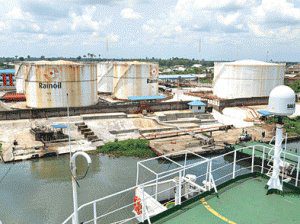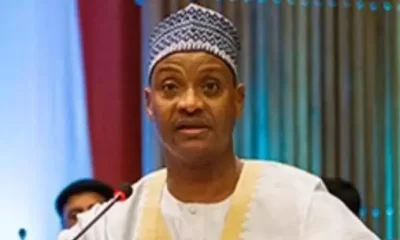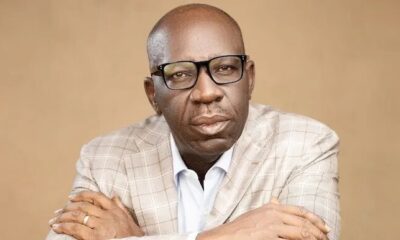With all the razzmatazz what were the takeaways of the visit for Nigeria? Obama told reporters that Nigeria is one of the most important countries on the African continent and in the world. He commended Buhari’s work in trying to root out corruption that had held back Nigeria’s economic growth and development.
According to him, President Buhari came into office with a reputation for integrity and a very clear agenda and that is to make sure that he is bringing safety and security and peace to his country.
Making clarifications, White House spokesman, Josh Earnest said: ‘’to make sure that even as thay are carrying out counter terrorism raid and other security operations, that they are mindful of the basic human rights of their people.’’ And that was certainly an important part of the conversation that the President had today.The United States could offer intelligence to help the Nigerian efforts as well as support for communities hurt by the group.
The meet portends tremendous goodwill for Nigeria as it strengthened the rough edges of our recent checkered bilateral relations. President Obama may have told President Buhari that the circumstances of their coming to office looked similar. When Obama came to power in 2008, there was economic recession in the United States as it is now in Nigeria. He equally met an empty treasury with debt burden up to $10 trillion and high unemployment.
Obama inherited protracted wars in Afghanistan and Iraq, and Buhari an insurgency in north eastern Nigeria, an indication that the solution to Nigeria’s problems lies with Nigerians. This President Buhari acknowledged when he addressed the media last Wednesday that fixing Nigeria is the responsibility of Nigeria and that others could help. He has taken his destiny in his own hands.
The issue of same sex marriage was slipped in the meeting of the President with the joint committee of American Senate and the House on Foreign Affairs. The President’s media adviser, Femi Adesina tweeted that President Buhari was pointblank when he told the United States lawmakers that sodomy is against the law in Nigeria, and abhorrent to our culture.
The President’s visit in my opinion ended there. It was an attempt to tell Nigeria that America would never compromise on her interests no matter whom. A cautious optimism lies ahead, since a smirk of paternalistic relationship could not be established this time around by America.
As the arcadia is over, President Buhari needs to settle down to prosecute the terror war in the north east. He requires support by way of intelligence and possibly equipment. Buhari’s demand to recover about $150 billion oil loot stashed in western vaults is genuine to execute his promises to the Nigerian people if the United States would genuinely oblige his request.
With this, exploration of hydrocarbon deposits in the Nigerian Frontiers Inland Sedimentary Basins of the Benue trough, Bida Basin, Rima-Sokoto, Anambra among others could be accomplished. Peace in the frontline states of Borno, Adamawa and Yobe would engender a relaunch of the suspended activities in the Lake Chad basin due to Boko Haram insurgency. Front line states like Borno, Adamawa and Yobe that occupy part of the 179,282 square kilometres of total area 19.4 percent of Nigeria’s landmass would benefit immensely from the basin’s economic fortunes if effectively utilised.
Most International Oil Companies (IOCs) are divesting from the onshore in the Niger Delta, concentrating on offshore exploration and production (E&P). IOCs claim they are divesting because of diminishing output of marginal fields, insecurity and operational difficulties in terms of sabotage to infrastructure and oil theft.
When IOCs start divesting as they are doing now, it is a pointer that the Niger Delta is maturing. The DPR has hinted that we have reached the plateau of production in the Niger Delta; where oil reserves are dropping and output is dropping too.
This has made Nigeria to be among the declining nations in OPEC. The implication is that resource exhaustion has sent production of conventional crude into reverse. If we must continue to meet our OPEC quota and also have enough for local refining, we must increase our current oil reserve which has depleted to 35 billion barrels.
If nothing is done to reverse the trend, we may have no option than to do what other countries like Gabon and Indonesia did by pulling out of OPEC in 2003 and 2009 respectively, when their consumption overtook production. We should as a matter of urgency explore the Chad basin.
The Conventional Basin of Lake Chad has a total area of 427,500 m2 which translates to 20 percent of the area under the Lake Chad Basin Commission. Nigeria has 21 percent of the total area. The Chad Basin is estimated to have oil reserve of 2.32 billion barrels of oil and 14.65 trillion cubic feet of natural gas. Nigeria, Niger, Cameroon and Chad border the Lake Chad.
Dow Jones Business News quoted the Pipeline Steering and Monitoring Committee of Cameroon in a statement issued recently that Chad’s crude oil exports rose 51 percent in the first four months of 2015 as a Chinese firm; China National Petroleum Corporation began pumping oil through the Chad- Cameroon pipeline.
The 1080 km pipeline from landlocked Chad is from Doba fields, Chad to the export terminal of Kribi, Cameroon. Export facilities in Kribi include an onshore – pressure reducing station and a subsea pipeline connected to a floating production storage and offloading vessel (FPSO). The project was completed in 2003 at over $3billion to access international markets.
The pipeline is operated by a consortium led by ExxonMobil (40 percent).Others are Petronas, Malaysia (35 percent) and ChevronTexaco (25 percent).Cameroon received $20.40 million in pipeline royalties for the first quarter of 2015.
BP Statistical Energy Survey estimated Chad’s proven oil reserve at 1.5 billion barrels and an equivalent of 36 years of current production of 134,000 barrels per day. According to International, Chadian officials recently estimated an increase in production to 300,000 barrels per day by 2016.
Some super majors are allegedly showing very strong presence in and around the oil rich Lake. Perhaps Washington is telling Abuja that some under water torrents are on in Lake Chad. The six world super majors are ExxonMobil (United States), Shell (The Netherlands), Chevron (United States), BP/Amoco (United Kingdom), Total (France) and ConocoPhillips (United States).






















